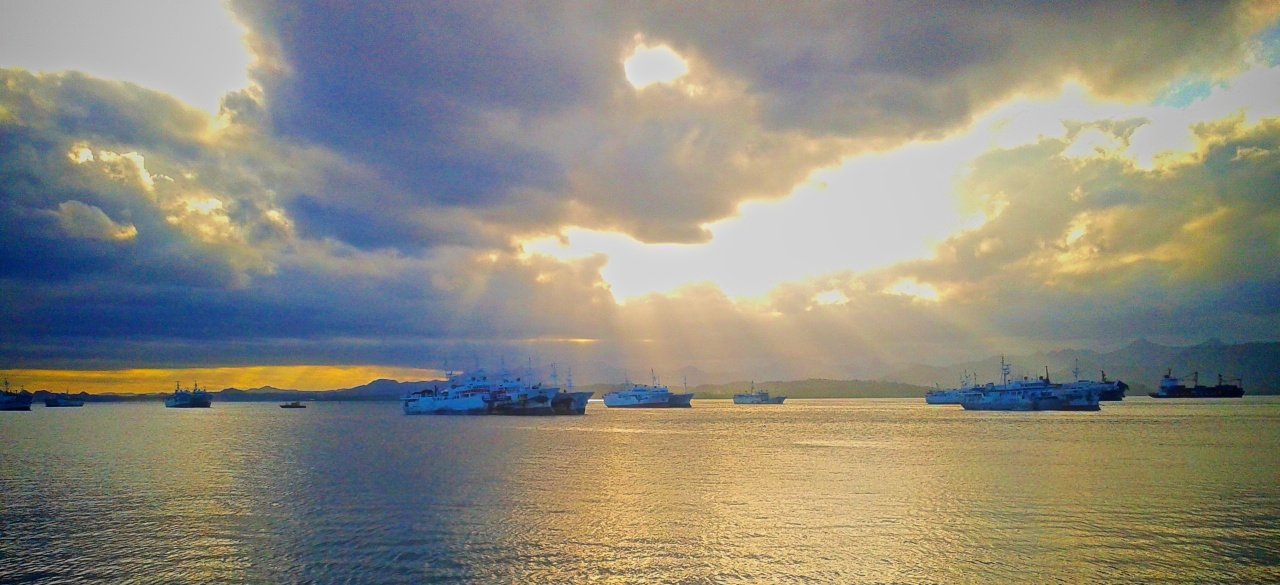For a long time, i been writing about fisheries subsidies , and when I asked what the main problems of fisheries are, my standard answers were fisheries subsidies and people’s inequality. Both are the root of the most known problems (overfishing, overcapacity, IUU, labour abuses, etc.)
So I was very positive (and even spoke at WTO events) when the subsidies agreement was signed… yet as with all these agreements (as with CMMs in RFMO) what we agreed to is the lowest common denominator… and you only see the holes later on.
I read the text, and found some things, but waited for my more thoughtful friends to dig deeper and either conform or expand my views.
In this article, my friend Brad Soule and his colleague Christine McDaniel went deep and showed some of the holes behind the good intentions… now, it is not good to have an agreement; it is all the opposite, yet we need to be aware of the embedded shortcomings.
I find it unfair when the media and commentators’ discourse pinpoints the solution to multifaceted seafood value chain problems (from IUU fishing, seafood safety and species fraud to labour issues) on the WTO subsidies agreement (is just a piece of paper). As this risks hyperinflating expectations on what the agreement can offer, with potential operators then walking away disappointed because it does not deliver on the hype built around it.
So yeah… read the original, I quote the intro and the conclusions below.
After more than a decade of meetings and work, an agreement to “end fisheries subsidies” under the auspices of the World Trade Organization (WTO) was adopted in June 2022. The agreement will enter into force once two-thirds of WTO members formally accept it. With 164 member states, that means 110 is the number needed. As of this writing, 43 have formally accepted the agreement. Members have decided to continue negotiations and discussions on outstanding issues, leading up to the WTO’s 13th Ministerial Conference in Abu Dhabi in February 2024.
The WTO agreement [1] aims to directly tackle government subsidies that contribute to illegal, unreported, and unregulated (IUU) fishing and overexploitation of fish stocks along with other goals. Nearly 90 percent [2] of the world’s marine fish stocks are now fully exploited, overexploited, or depleted. Agreeing to stop using taxpayer dollars to drive down global fish stocks to unsustainable levels sounds like an obvious positive step.
How to implement and enforce the agreement may be as important as the agreement itself. One of the overarching, laudable goals of the WTO agreement is encompassed in Article 3.1: “No Member shall grant or maintain any subsidy to a vessel or operator engaged in illegal, unreported and unregulated fishing or fishing related activities in support of IUU fishing.” Article 4 prohibits subsidies regarding overfished stocks, and Article 5 makes clear that the prohibition on subsidies pertains even to areas outside of the jurisdiction of coastal members (i.e., the high seas). But the devil is in the details. In this issue brief we identify several loopholes that should be addressed in the implementation phase to ensure the effectiveness of the agreement.
Loophole #1: No Investigations
Loophole #2: Weak Penalties
Loophole #3: Weak or Opaque Science Management
Loophole #4: Lack of Transparency
Conclusion
It is not our intent to say that the WTO Agreement on Fisheries Subsidies cannot be effective, but the probability of success for this agreement depends on effective implementation and enforcement. It is one of the last major international agreements related to fisheries in the pipeline of treaties and agreements that followed the UN Convention of the Law of the Sea in the 1980s, along with the Intergovernmental Conference on Marine Biodiversity of Areas Beyond National Jurisdiction (often called the “high seas” treaty) in 2023. These agreements have sought to improve ocean governance and have espoused goals related to the sustainability of fishery resources, yet the resilience and sustainability of fisheries has continued to deteriorate.
The WTO process can be slow and complex, which does not align well with industrial fishing technology that is capable of diminishing fish stocks on a rapid scale. Few today remember the pollock fishery of the Central Bering Sea, which would be one of the largest fisheries in the world if it still existed. Overfishing led to the collapse of the pollock fishery with “a lack of knowledge about populations biocomplexity added to the confusion of how best to manage the harvest.” [9] Although a “moratorium” on fishing in that area was declared in the 1990s, the fishery collapsed completely and has never recovered.
Transparency and accountability, however, can counter these forces. In the absence of a means to compel compliance, it is critical for interested parties, wherever they are in the world, to have unfettered access to information on the operation of this agreement, no matter how limited that information may be. Implementation must also be designed to require a realistic level of government enforcement, as resources will ebb and flow. [10]
People need to be able to connect the dots. Transparency and accountability will enable individuals, civil society, and businesses to exercise the tools at their disposal to make informed decisions about how they pressure governments or make purchases, or provide feedback to businesses that purchase seafood from subsidized fishing.
The probability of the agreement’s success depends on effective implementation and enforcement. In the short term after ratification, the relevant government agencies and nongovernment organizations should collaborate on designing ways to ensure robust reporting by all members in all countries across all aspects of the agreement, and easy access to that reporting in the public domain. It may be the best we can do to build the case for further agreements. Hopefully, many of our shared natural resources will last long enough for those agreements to come.
